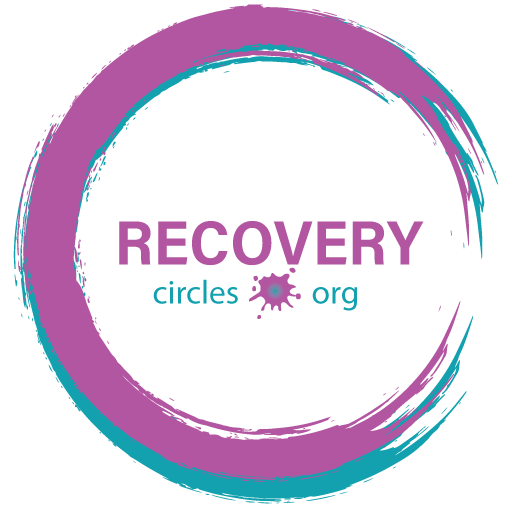Co-Occurring Disorders Treatment
Seeking help for a co-occurring disorder? Contact us or continue reading to learn how Sober House Philadelphia provides effective therapies and support for individuals facing both mental health and substance use challenges.
You can also call us at (267) 412-3258
Featured In





“
I finally feel like I have a future. These people believed in me when I couldn’t.
– John L.
“
What I found here wasn’t just recovery housing in Philadelphia, it was a group of people who truly cared if I succeeded. They held me accountable and helped me rebuild.
– Tony F.
“
As a single mom, I needed a place I could trust. This affordable sober home in Philadelphia gave me that and more. I’m forever grateful.
– Jasmine T.
See more of our success stories
Mental health disorders have long been a challenge for many individuals, and the road to recovery becomes even more complex when these conditions are accompanied by additional illnesses. A co-occurring disorder—also known as a dual diagnosis—refers to the presence of both a mental health condition and a substance use disorder, such as drug or alcohol addiction, process addictions, or additional psychological conditions like PTSD, anxiety, or bipolar disorder.
According to behavioral health data, over 8 million American adults were living with co-occurring disorders as of 2015. Without proper, integrated treatment, these individuals are at a significantly higher risk of deterioration in both their mental and physical well-being.
At Sober House Philadelphia, we recognize the unique challenges that come with dual diagnoses. That’s why we provide specialized support for individuals managing co-occurring disorders. Our approach includes counseling, relapse prevention strategies, and post-rehabilitation mentoring. Through a blend of clinical support and community-based care, we help residents navigate both recovery and mental wellness, one step at a time.
You can also call us at (267) 412-3258
What Are Co-Occurring Disorders?
Co-occurring disorders, as identified by leading mental health organizations, refer to the presence of two or more mental health conditions within the same individual—most commonly a combination of substance use disorder and a psychiatric illness such as PTSD, bipolar disorder, depression, personality disorders, or anxiety disorders.
The most prevalent co-occurring diagnoses typically include substance addictions (like alcohol or cocaine dependence) paired with mood or anxiety disorders. These conditions often overlap in symptoms, which can make proper diagnosis and treatment especially challenging.
At our Sober House in Philadelphia—including locations in Fishtown, Mt. Airy, and Logan—we understand the complexities of dual diagnoses. Many individuals struggling with co-occurring disorders have histories of trauma, loss, or substance misuse, all of which can serve as triggers. Because of this, a one-size-fits-all approach doesn’t work. Our team emphasizes a careful, individualized evaluation process to ensure each client receives the most effective treatment strategy for their unique situation.
We incorporate integrated care methods—such as dialectical behavior therapy (DBT), cognitive behavioral therapy (CBT), and anxiety treatment—to address both the underlying mental health issues and substance use. Our goal is to help each individual build the foundation for long-term recovery and renewed well-being.
Does Sober Recovery Community Offer Co-Occurring Disorders Treatments?
philadelphia Recovery Community serves as a supplemental mental health support provider and does not directly offer substance abuse treatment, addiction treatment, or medication-assisted therapies for individuals—including young adults—facing mental health or substance use challenges.
Instead, our focus is on after-care support through structured sober living homes, which are crucial during the early and often most vulnerable stages of recovery. This transitional period is key to building stability, reinforcing healthy routines, and providing peer accountability that supports long-term sobriety.
In Philadelphia, philadelphia offers sober living residences in supportive neighborhoods like Fishtown, Mt. Airy, and Logan. These homes offer a safe, structured, and human-centered environment where residents can continue working toward their recovery goals with guidance, consistency, and community support.
For those in need of clinical treatment for substance use or co-occurring disorders, philadelphia works closely with our trusted partner, The Heights Treatment. Their team of licensed professionals offers comprehensive therapeutic services, ensuring clients receive both the clinical care and structured after-care they need to sustain meaningful recovery.

Sober Livings

Outpatient Treatments

Individualized Intensive Program

Sober Companions
What Causes Co-Occurring Disorders?
The development of co-occurring disorders can be influenced by a wide range of biological, psychological, and environmental factors. To determine the most effective treatment, specialists must identify the underlying causes of how a substance use disorder and a mental health condition developed together. Understanding these root causes is crucial for making a dual diagnosis and crafting a personalized, integrated treatment plan. Some common contributing factors to the onset of co-occurring disorders include:
Environmental Triggers
Patients may have suffered deep trauma from the past, such as sexual or physical abuse and mental health triggers. Stress from work or an abusive relationship may also contribute to an individual developing this condition.
Social Status And Poor Quality Of Life
Patients may have experienced deep-rooted trauma in the past, including physical or sexual abuse, which can serve as a major trigger for mental health issues. Additionally, ongoing stress—whether from demanding work environments, toxic relationships, or other life pressures—can significantly contribute to the development of co-occurring disorders. These unresolved experiences often lead individuals to self-medicate with substances, further complicating their mental health and requiring a more comprehensive, trauma-informed approach to treatment.
Genetics
Genetics play a key role in mental health. Individuals with a family history of mental illness are at greater risk of developing co-occurring disorders, especially when substance use is involved, as certain genes can heighten vulnerability.
Mental Illness
Pre-existing mental health conditions can worsen over time, leading some individuals to use drugs or alcohol as a form of self-medication. This often increases the risk of developing a co-occurring disorder.
Substance Abuse
People who engage in substance use are at a higher risk of developing mental health issues over time. If you know someone struggling with substance use, alcoholism, or any psychiatric disorder, it’s crucial to seek professional help from a qualified physician.
Who Is At Risk Of Developing Co-Occurring Disorders?
When two or more mental health disorders co-occur—especially when one involves substance abuse—treatment becomes significantly more complex. Individuals with a pre-existing mental illness are particularly vulnerable, often turning to drug or alcohol use as a way to cope, which only deepens their condition.
Youth are especially at risk. During their formative years, they are more susceptible to developing both substance use and mental health disorders simultaneously. This makes early intervention crucial. A proper dual diagnosis and personalized treatment plan are essential to prevent long-term consequences such as self-harm, relapse, or a decline in overall emotional and psychological development.
Why Would Someone With Mental Health Disorders Abuse Drugs Or Alcohol?
When someone is struggling with a mental disorder—especially a severe one—it can feel like hope has completely vanished. In many cases, individuals turn to alcohol or drugs to numb their emotional pain, which can quickly spiral into alcohol use disorder or substance abuse disorder.
This pattern is all too common, as people often rely on substances to cope, unaware that it may only worsen their mental and physical health. If left untreated, these conditions can evolve into more severe mental illnesses like borderline personality disorder and may also lead to serious medical complications such as organ damage, weakened immune function, and impaired brain development.
Recognizing early risk factors and warning signs is crucial. Timely intervention with the right addiction recovery and mental health rehabilitation plan can prevent long-term damage and help individuals regain control of their lives.
Cities We Serve
What Types Of Treatment Are Effective For People With A Co-Occurring Disorder?
There are certified substance abuse and addiction treatment programs recognized by national institutes and mental health services administrations that are specifically designed to address common co-occurring disorders. Most experts and treatment centers recommend either beginning with integrated treatment for both mental health conditions and substance use or first stabilizing the substance use disorder before addressing the mental health component.
Once a proper dual diagnosis is established, mental health professionals can implement integrated treatment plans. These often include behavioral therapy approaches aimed at helping individuals develop healthier coping mechanisms and improve the habits influenced by their substance use and underlying mental health disorders.
Are There Co-Occurring Disorder Treatments Near Me?
philadelphia Recovery Community offers comprehensive recovery and mental wellness support for individuals struggling with co-occurring disorders. For those seeking care in the Philadelphia area, our sober living residences in neighborhoods like Fishtown, Mt. Airy, and Germantown provide a supportive environment tailored to each individual’s unique needs.
Our supportive community of staff and peers creates a safe, nurturing environment where you can focus on healing and long-term recovery. Our team of experienced professionals works closely with each individual, offering personalized support that addresses both mental health conditions and substance use challenges.
In addition to therapy and community support, philadelphia offers relapse prevention services to help clients stay on track and maintain sobriety.
Recognizing and accepting the problem is the first step toward recovery. philadelphia is here to walk that path with you—supporting your journey toward mental wellness and freedom from substance use.
Call our recovery specialists at Sober House Philadelphia today at (267) 412-3258 or fill out our contact form to learn how joining our Philadelphia sober living community can help you reclaim your life. Whether you’re seeking clean and sober housing, structured transitional support, or simply someone to talk to — we’re here for you.
